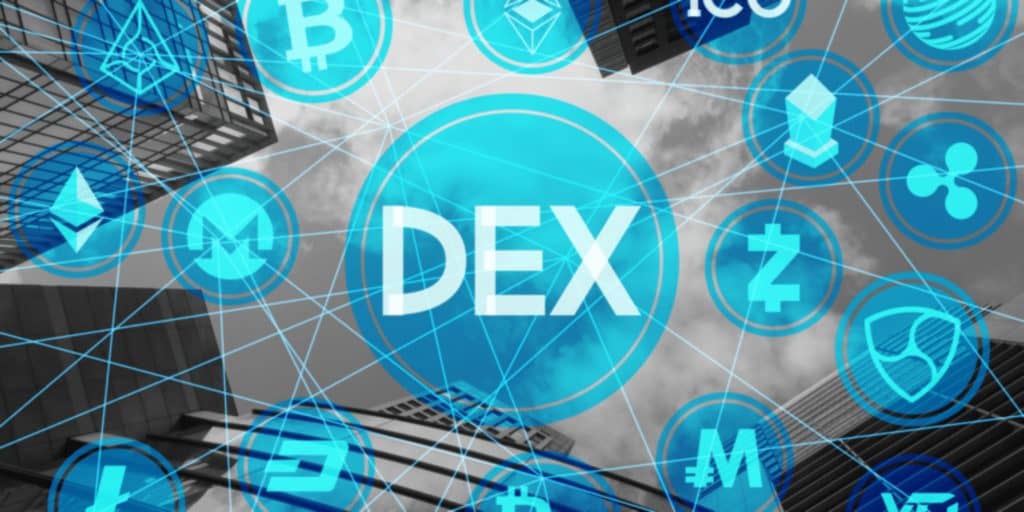Содержание
People like Vinny Lingham say that some centralized exchanges will soon close, and think this will accelerate the adoption of decentralized exchanges. Due to the lack of security, transparency, and efficiency that centralized exchanges have demonstrated, a strong demand for decentralized exchanges have surfaced. Scores of new actors are tackling these problems and addressing an obvious need by the community. Projects like 0x, Ethfinex, ShapeShift.io and EtherDelta have emerged and generated a strong interest.
According to a report, auction proceeds from the sale of the NFTs on the OpenSea marketplace will benefit The Ocean Cleanup, a nonprofit that aims to develop technology to eliminate plastic pollution. Uniswap Governance offers grant funding for people building apps, tools, and activities on the Uniswap Protocol. If you think these fees are too steep or think that the whole point of crypto is to avoid the kind of centralized, Big Brother monitoring you might experience with a tradfi bank, chances are you may have been thinking of making the DEX switch. They make their money, for the most part, by charging you transaction fees every time you make a trade or a transfer. They also centralize all of the above-mentioned core functions through their platforms.

Liquidity is a CEX’s trump card, some would argue – and that is why they put so much effort into providing customers with all the high-speed liquidity they could possibly need. Official posts from the IOTA Foundation, and migrated posts from old platforms. While the What Exactly Is a Decentralized Cryptocurrency Exchange development of the IOTA Smart Contract protocol progresses, we already see increased interest in its architecture and unique characteristics. Some projects are even under heavy development already, preparing and testing the protocol ahead of the official release.
A Wider Selection Of Tokens
Hundreds already exist, but the goal here is not to focus on their number, but rather on their limitations and potential for improvement. The numbers speak for themselves — market capitalizations have gone through the roof, transaction volume has skyrocketed, and adoption from individuals, corporations, and governments has reached a global scale. As such, they are monitored for irregular transactions and must implement investor protection measures.
This metadata will be stored on the blockchain and available to consumers via a holographic label, containing an embedded QR code, affixed to each wine bottle. Earlier this week, a German technology corporation reportedly launched the Estanium Network—a platform to help businesses track their carbon footprint and securely share reliable data directly with industry partners and consumers. According to reports, the new network will use verifiable credentials via the IDUnion blockchain to ensure the veracity of the data supplied. As there’s theoretically no middleman to pay with a DEX, you don’t need to worry about a platform’s bottom line.
Centralized Crypto Exchanges Vs Decentralized Exchanges
Several CEXs hold the private keys and most of their users’ funds offline in crypto wallets that aren’t connected to the internet (these are known as “cold” wallets”). Crypto-platform for asset/custom token issuance, transfer and trading on the Waves blockchain, with centralised order matching and decentralised settlement. A DEX puts you in charge of your own tokens or fiat by letting you execute functions on a blockchain network directly.
The OCC letter was followed by a joint statement by the OCC and other financial regulators recognizing certain opportunities and risks that crypto-asset activities present for banks, their customers and the overall financial system. Differences between projects’ value propositions are hard to spot in this field, and most of them will probably not exist in a close future. This “state of decentralized exchanges” may not be fully exhaustive and did not assess all of those projects’ viability nor teams’ legitimacy. It should be taken with a grain of salt and you should conduct your own due diligence before using or investing in any of those. CEXes are forever listing and delisting coins – again often due to regulations. In Japan, for instance, regulators get to approve or reject coins, a factor that leads to an often very narrow selection of tokens on centralized trading platforms.
They have proven to be vulnerable to hacks, to react poorly to unusual blockchain events like hard forks, and often run with a high regulatory risk. Centralized exchanges keep their systems off-chain, meaning they operate as escrows for their clients, and transactions are not recorded on the blockchain. This leads to massive breaches of security and unsafe storage of information, funds, and private keys. Late last month, the Office of the Comptroller of the Currency published a letter clarifying previous guidance on whether national banks and federal savings associations (collectively, “banks”) can engage in certain cryptocurrency, blockchain and stablecoin activities.
This “state of decentralized exchanges” begins with major cryptocurrency numbers and centralized exchanges, which currently monopolize the market. Decentralized exchanges are building the future of cryptocurrencies trading, and this “state” aims to pave its way with its rough listing of projects in the making. We should pay attention to them as they are shaping the way cryptocurrencies trading will operate in the future. A DEX manages liquidity and executes trades through the use of smart contracts. This use of smart contracts removes the need to rely on central authorities, institutions and intermediaries, and sets the stage for a pure peer-to-peer trading environment. No banks, no brokerage firms, no government intervention – just users, tokens and smart contracts.
However, even the 0x protocol may suffer from problems like efficiency and scalability, which still represent massive hurdles for the whole blockchain, Ethereum and exchange ecosystem. Solutions in the making, such as State Channels, or Sharding/Plasma, will allow scaling, albeit with certain sacrifices. Developers, traders, and liquidity providers participate together in a financial marketplace that is open and accessible to all. If you think you have better things to do with your time than fuss about with algorithms, blockchain networks and private key management, use a big, reputable CEX.
A big CEX makes its money from having enough fiat and assets in reserve to let you make instantaneous deposits and withdrawals. If you want to swap your BTC for USD, for instance, you would expect to be able to do that in seconds with a CEX…or you’d take your custom elsewhere. If you keep your crypto in the wallets they provide, your coins are either stored in their hot wallets or their cold wallets. Get the latest blockchain news, webinars, resources, and more straight to your inbox. Most are not easily usable, struggle with liquidity, do not provide fiat payments etc. An exhaustive study of DEXs and a look toward the future of digital asset exchange.

Insecurity, risk of fund loss and thefts due to their centralized functioning. 73% of centralized exchanges take custody of user funds, while 23% let users control keys⁴. They represent honeypots for hackers as they are responsible for billions of trades per day and store most of them on their servers. Thanks to blockchain technology, we are moving toward a trustless economy, with no need of third parties to exchange goods.
But the further down the crypto rabbit hole you travel, the more you will come to notice that it does actually matter whether you choose a centralized exchange or a decentralized exchange . According to a recent report issued by the Internal Revenue Service , the IRS Criminal Unit seized $3.5 billion in cryptocurrency during fiscal 2021, which accounted for 93 percent of its criminal investigation seizures. Nearly a third of the recovered funds were from the government’s case against Ross Ulbricht, founder of the Silk Road darknet marketplace. One of the oldest projects in the field is EtherDelta, a platform with a simple user-interface and basic trading features , which has already gained sufficient traction to generate up to 25 million USD-equivalent of daily transactions⁵. Among most well-known and trafficked centralized exchanges are Bithumb, Bitfinex, Bittrex, Poloniex, Kraken, GDAX, Coinbase and Gemini.
Disadvantages Of Dex
Other actions, such as staking, wrapping or trading tokens, can incur fees, but won’t cost you an arm and a leg. For example, wrapping an Ethereum coin into a dollar token so that you can exchange it for a different coin can be prohibitively expensive on other networks. On IOTA, it will be up to the validator to set the fee, which could be justified by arguments such as the resilience of their network, and so on. Data leakage is on everyone’s mind and the protection of private data is a top priority. On a DEX, users don’t provide sensitive personal details to third parties and there are usually no registration processes for using the exchanges. In more NFT news, a well-known French luxury fashion brand has created 15 NFTs launched on Polygon in collaboration with the artist Chito.
“The party was thrown with P00LS, which allows creators and brands to launch their own crypto token, distribute it to their communities, and list it on the P00LS decentralized exchange, where it can be earned and traded on Ethereum.” — @PageSix https://t.co/udT4SYRxOF
— P00LS (@p00ls_) April 15, 2022
Both cryptocurrencies and CFDs are complex instruments and come with a high risk of losing money. Creating user-friendly interfaces that even your grandmother could https://xcritical.com/ make her way around is a CEX’s priority. And because orders and custody are all centralized on their platforms, they let you make your trades in seconds.
What Are The Benefits Of Using A Dex?
Build a custom email digest by following topics, people, and firms published on JD Supra. The Uniswap Protocol is managed by a global community of UNI token holders and delegates. Get started with quick start guides, protocol documentation, a Javascript SDK, and fully open source code. If you forget it, you can simply ask the CEX to send you a new one or reset it. If you are using a DEX and lose your private keys, your funds could become irretrievable – forever.
【 Expert's Sayings 】
— WFC (@fxvjI7Sb7oboSRS) April 13, 2022
What are we doing?
Universe Tianyi is not only the first issue of digital assets WFC, but to create a grounding application, ecological long-term, become a popular decentralized exchange and solve the current block public chain bottleneck public chain. pic.twitter.com/HJvwpqVOqj
If you don’t control your own private keys, you can’t take charge of your custody. Your tokens may be sitting in a wallet attached to your login details and password on a CEX, but – like a bank – the funds you own aren’t actually in your possession. The ease and transparency of using a DEX, especially when combined with the benefits of the IOTA protocol, makes it easy to see why it will be a driving force behind the multitude of use cases in decentralized finance, empowering decentralized communities to scale up. The lack of a centralized service offers individuals and communities the freedom to launch their own token economies and build their own trading infrastructure. Unlike CEX, DEX doesn’t enable transactions with fiat currencies, so you have to have crypto to trade crypto .
Ethereum Q3 2020 Defi Report
Other traders are able to borrow the funds from the pool to make trades, such as arbitrage or loans. Users pay a trading fee equal to, for example, 0.3% paid per trade, which is allocated to everyone in the pool based on the percentage of their share of the pool, thus rewarding anyone who adds liquidity to the pool. Users who move between different lending marketplaces specifically to provide liquidity with the purpose of reaping the rewards given to liquidity providers are doing what is known as “yield farming”. Before diving into decentralized exchanges, it’s worth comparing them to centralized exchanges . Similarly, a Swiss wine association has reportedly partnered with a technology trio consisting of a blockchain-based ecosystem, a holographic security system and a data certification system to digitize the supply and value chain for its winemakers. According to a press release, the project aims to deliver wine drinkers a “more immersive and digital product experience” by providing data about each varietal, such as the production, ingredients, quality and sustainability.
- A big CEX makes its money from having enough fiat and assets in reserve to let you make instantaneous deposits and withdrawals.
- While it’s certainly true that exchanges used to have almost laughably poor security systems, this is no longer true in most cases.
- Get the latest blockchain news, webinars, resources, and more straight to your inbox.
- In fact, they can trace the movement of their assets through every stage of the decentralized exchange.
- On a DEX, users don’t provide sensitive personal details to third parties and there are usually no registration processes for using the exchanges.
The vast majority is in production/beta; this report aims to list all of them and assess their current state of development. I included their website and Medium accounts when available, which provide most of projects’ updates. Some exchanges offering advanced financial products such as futures or derivatives like dYdX or VariabL are voluntarily excluded of this benchmark since there is another article in the making for these ones. Although high-profile hacks were once common in the world of crypto, it appears that many of the bigger exchanges are finally learning their lesson. While it’s certainly true that exchanges used to have almost laughably poor security systems, this is no longer true in most cases.
What Is A Decentralized Exchange?
CEXes have a lot to lose if a token turns out to be a dud – and often have listing councils that spend days or weeks going through listing applications with a fine-tooth comb. That can ensure greater safety for users, but it can also hinder your ability to make your own choices in this regard. DEXes put the responsibility in your hands, again decentralizing the process. “Not your keys, not your coins” is the familiar battle cry of the crypto podcaster Antonio Pompliano.

But if you want deeper levels of control over the way you trade and want to explore a way to reduce your trading costs, maybe a DEX is worth looking into. In many countries, crypto exchanges have to apply for operating permits and prove their stability and competence to financial regulators. These same regulators are keen to bring crypto under the same kind of regulatory umbrella as exists for tradfi institutions such as banks. A lack of centralized control also means that DEX users don’t have to hand over their private keys to a third party.
IOTA’s smart contract tech enables decentralized exchanges – the engine behind decentralized finance and decentralized autonomous organizations – to be built by anyone, anywhere, and with the potential to power all kinds of projects, applications and markets. A building block of DEX is liquidity pools, which are hosted on platforms like PancakeSwap. In liquidity pools, users willing to act as liquidity providers pool together two different assets that they want to trade on the DEX (note that, unlike CEX, DEX doesn’t enable transactions with fiat currencies). The ’foreign’ or non-native assets are brought onto the DEX in a process known as “wrapping” – users take an asset that isn’t native to DLT.
Iota Staking For Assembly Continues
If you are at an office or shared network, you can ask the network administrator to run a scan across the network looking for misconfigured or infected devices.
From a wider perspective, decentralized exchange adoption will follow the adoption of the blockchain itself, alongside better educated users and technological breakthroughs. As mentioned, centralized/decentralized hybrid models will most likely get their break first. Fully decentralized exchanges remain an ideal, towards which most of those projects are aiming. “Ultimately, I believe that centralized and decentralized exchanges will co-exist as they each provide their own unique benefits,” says Linda Xie, who sums up the situation pretty well .
Bigger platforms may also be insured against the risk of hacking events. The current state of design of most of them is certainly not beginner-friendly, and it can take exploring dozens of platforms to begin to familiarize yourself with the trading experience, combined with a relative lack of customer support or very little customer support. And as already mentioned, DEX doesn’t engage with fiat currencies, so you have to have crypto to trade crypto . Centralized exchanges will shift toward decentralized technologies sooner rather than later, but improvements have to come from both sides. Users to learn how to protect themselves, and platforms must provide better security tools, as well as education around common issues and best practices. This website includes information about cryptocurrencies, contracts for difference and other financial instruments, and about brokers, exchanges and other entities trading in such instruments.